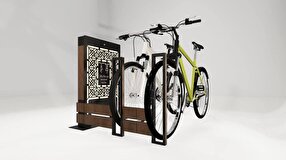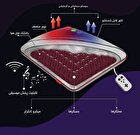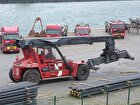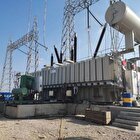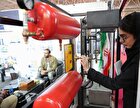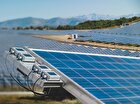First Compost Turner Vehicle in Middle-East Made in Iran

“Biocompost production can be placed at the top of recycling and sanitary waste disposal programs in Iran. One of the ways to convert organic waste into compost is to use the self-driving turner compost vehicle” said Davoud Rajabi, the managing director of the company.
“In this method, the materials are stored in piles on the ground and are aerated by the self-driving compost turner vehicle. With the activity of aerobic microorganisms, the composting process is gradually completed and pathogens are destroyed during this operation,” he added.
Rajabi said that his company can produce 12 compost turner vehicles annually, adding that they can increase the number to 50 units per year if supported.
In an earlier development in Iran, a knowledge-based company produced new organic compost from biological waste that is healthy to use.
“Azad Takin Biology Company was founded in the growth center of Islamic Azad University, Yasouj branch. In previous years, there was an invention called biological production of compost, which is highly different with the other composts produced in Iran and other parts of the world. Our biologically produced composts are free of diseases and heavy and harmful elements,” Reza Kazzemi, the managing director of the knowledge-based company told ANA.
Kazzemi, who has MS in agricultural engineering, added that their product has been patented and their company signed contracts with Yasouj Municipality.
“In this company, we receive waste and litter created by households and then separate dry materials such as plastic, paper, iron, etc. and finally transform sour materials into compost or organic materials. These organic materials are used for agriculture, gardening, and greenhouses,” he added.
“Now, in addition to the production of compost, we plan to create a special environment for each plant separately. That's to say, we are trying to produce a soil with special compounds for each plant. This idea has reached the prototype or the pilot level, and normally for each exhibition, we produce between 300 and 400 kilos to present it in the event. We need facilities to industrialize the prototype so that we can move forward with our ideas," he said.
4155/v



